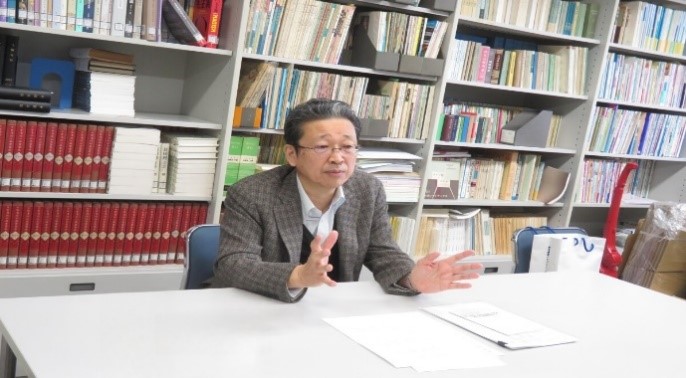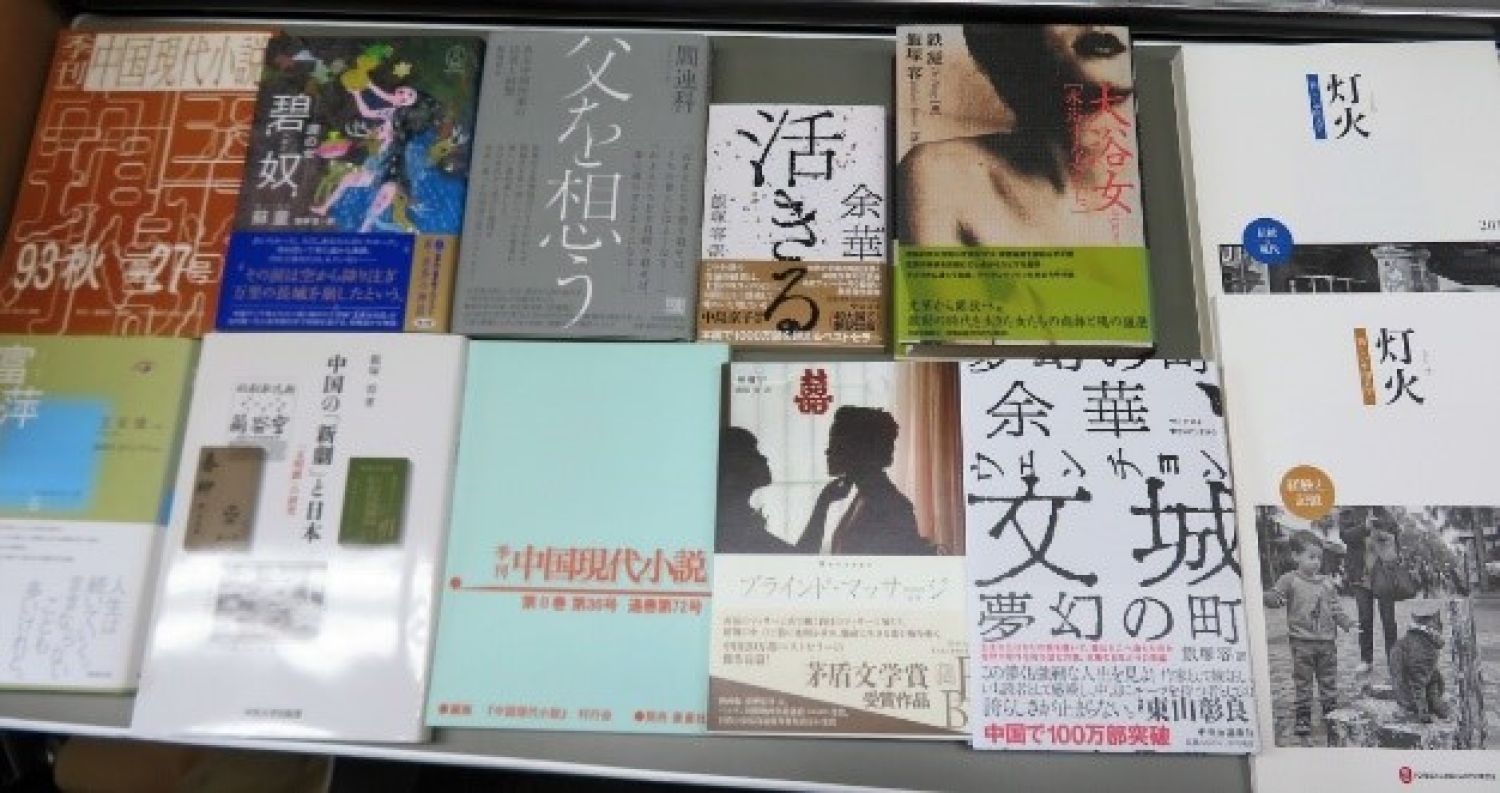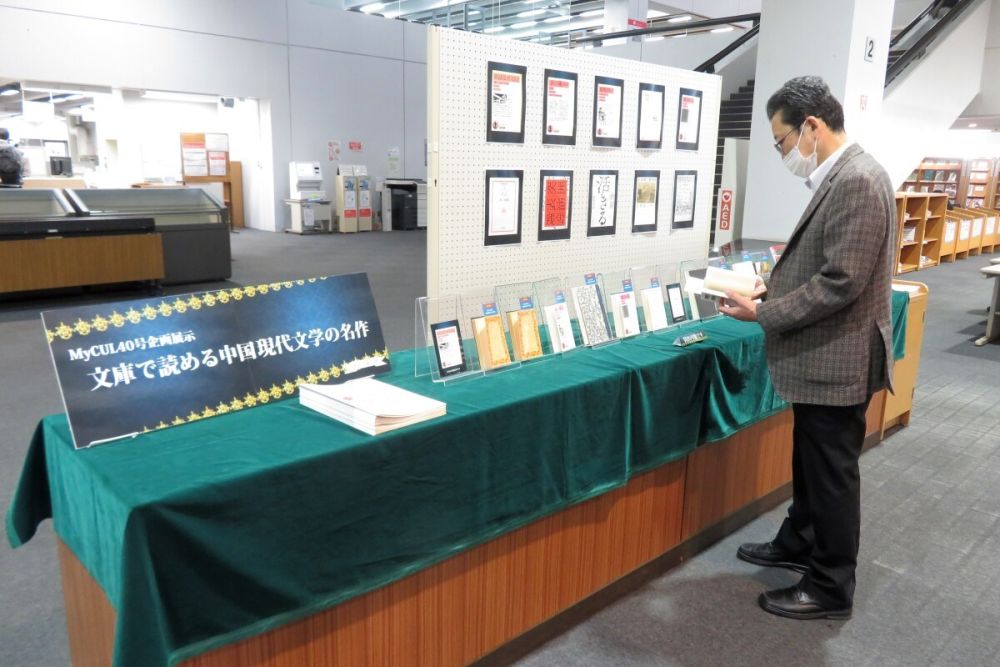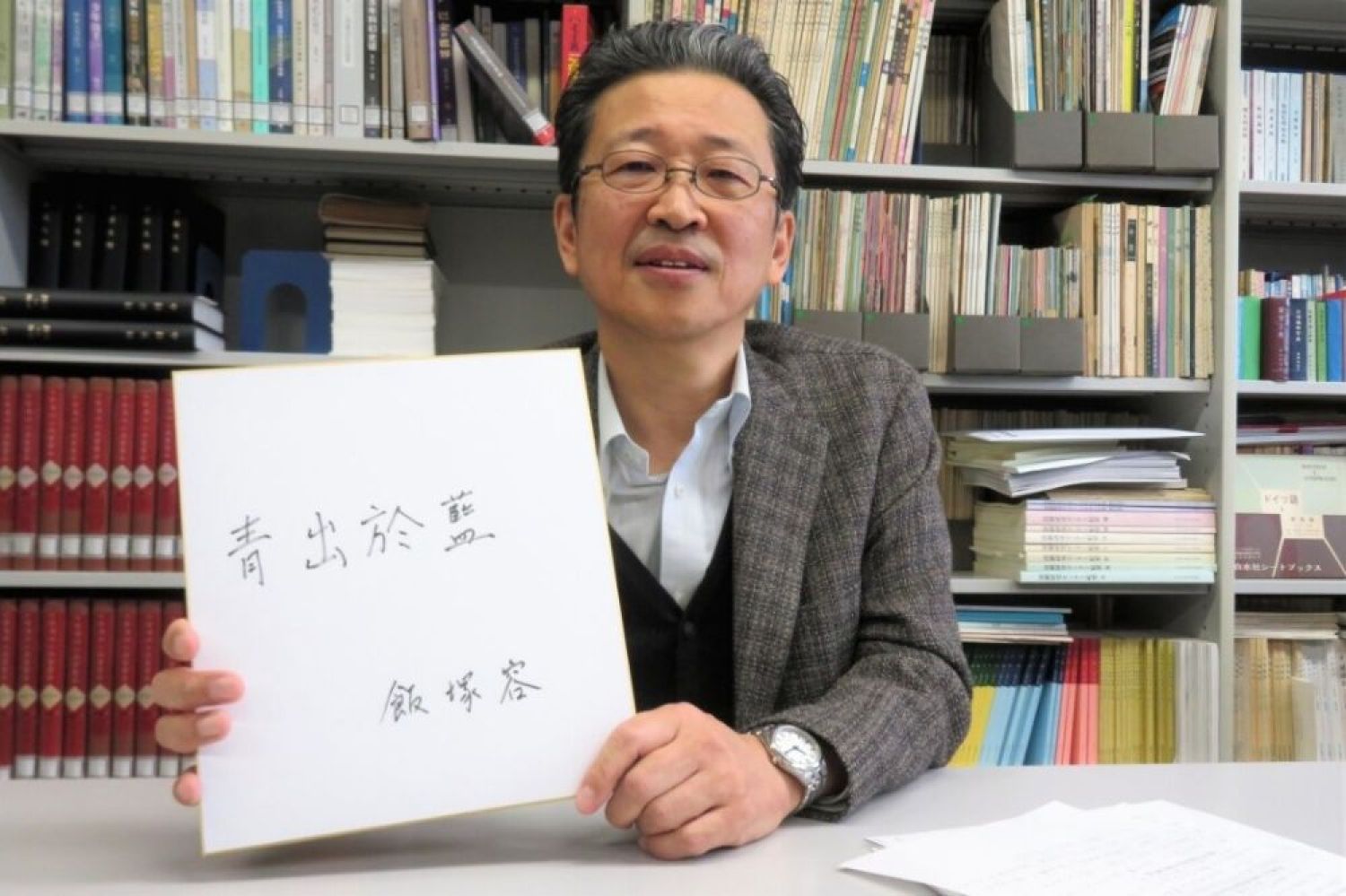2023.07.25
News
Professor Yutori IIZUKA of Chinese Studies Course, Graduate School of Letters, interviewed by Chinese Medias, People’s Daily Online and RecordChina
The interview video was taken at Chuo University Tama Campus, showing the shots of ongoing classes and research room in Building 3. It also introduced the exhibition titled “Masterpieces of Modern and Contemporary Chinese Literature readable in paperback” which was held in Chuo’s Central Library. The interview featured; why Professor Iizuka started studying Chinese literature; tons of translation works he had accomplished; some interesting episodes with the authors of his translation works. It also delve into the importance of devoting undivided attentions to our neighbor country through understanding its literature.
Interview:
The leading translator of Chinese novel, Professor Yutori Iizuka “Understanding China through novels”
We can learn about other countries, ethnics, or their daily life through literary works and there is a Japanese who diligently studies Chinese operas with hopes to make Japanese understand more about China. Such Japanese man is Yutori Iizuka, the professor at Chuo University.
The Bond with Chinese Literature
Professor Iizuka has translated over 80 novels, written by 40 or so Chinese authors. He surely is the leading Chinese-Japanese translator in the field of Chinese novels. Iizuka recalls that, at first, he was influenced a lot by his father, Akira Iizuka, the famous researcher specialized in early Chinese literature studies in Japan, and he followed a path of him. Akira Iizuka has translated the “Hóng Lóu Mèng” and made a great contribution to introduce the Chinese literature into Japan at that time. Iizuka entered to Tokyo Metropolitan University where Yoshimi Takeuchi and Shigeo Matsueda, both the famous Chinese literature researchers along with his father, were teaching. There, Iizuka studied Chinese literature methodically and established a solid base of Chinese literature study/translation for his future career.

After the reform and opening up in China, many young authors made an appearance. Thanks to the first publication of “Quarterly Chinese Modern Novels” in 1987, new novels written by Chinese young authors became familiar in Japan. Later on, Iizuka also joined the group of editing and translating the “Quarterly Chinese Modern Novels” and this opportunity has impacted greatly on his future translation works. First thing Iizuka has done was to intensively read Chinese literacies in order to publish his own translations.
It was around this time when Iizuka met Mr. Yu Hua, the Chinese author of the same age. Iizuka was extremely impressed when he read Yu Hua’s short stories published in 1989 for the first time, and he translated Yu Hua’s novel, “On the Road at Eighteen.” Iizuka wished to publish this novel so he wrote a letter to then fameless author, Yu Hua, for his approval. This is how Iizuka and Yu Hua’s close relationship started. A few years later, when Yu Hua met Iizuka, he said with deep feeling that “Mr. Iizuka is the very first translator who introduced my work abroad.”
“Chinese Literature is not difficult to read”
Professor Iizuka has a sense of feelings that Chinese friends, especially those in younger generation show great interests in not only Japanese literature but also in many aspects of Japanese culture such as manga or anime, while Japanese are not as interested in Chinese culture, especially the literature, as them. He thinks we need to enhance the interaction between authors.
Also, through his experience of being a professor, Iizuka realized that many of Japanese students have a bias that Chinese literacies are too difficult to understand. So, Iizuka proposed to set a special exhibiting area at Chuo’s Central Library where students can actually pick up Chinese novels. This special exhibiting area is called “Masterpieces of Modern and Contemporary Chinese Literature readable in paperback” and Iizuka wish to tell Japanese students that Chinese literacy is not difficult to understand. Rather, there are tons of interesting works.

Iizuka focuses on the trend that Japanese young readers have been attracted to Chinese science-fiction novels. Liu Cixin, the author of “The Three-Body Problem” is gaining significant popularity and many works written by young Chinese writers such as Hao Jingfang are translated in Japanese one after another, representing the Japanese high interest in such field.

Long History of Chinese-Japanese Theater Culture Exchange Iizuka sets his research theme on the History of Chinese-Japanese Theater Exchange. This includes the exchange history of Chinese Modern “Chinese Modern Drama” in particular. According to Iizuka, Many Chinese exchange students came to Japan from Latter Meiji era (1868-1912) to Middle Taisho era (1912-1926). Among those who came, there were students who were influenced by Japanese theater. Those students started to perform in China after they got back home, and this movement led to the birth of “Chinese Modern Drama.” Up until 1930, Chinese exchange students came to Japan one after another to engage in theater activities in Japan. As the original pieces are fabulous, the theatrical performances were brilliant, leaving mark on the history of Chinese-Japanese Cultural Exchange.
It was in 1980s when Iizuka enjoyed “Chinese Modern Drama” for the first time. It was performed by Beijing People’s Art Theatre. Looking back at the history of how “Chinese Modern Drama” has been sophisticated, you may see the strong tie between Chinese and Japanese cultural exchange.
Future Expectation “The Scholar May Waur the Master”
China and Japan are the neighboring country just having Japan Sea in between. The history of culture exchange between these two countries has been lasting for decades. “Novels tell the background history of Chinese, so you can tell how Chinese living style differs between each areas, and also understand how Chinese tend to think and see things. Then, you will discover different aspects of China and realize something new in their history. On the other hand, it is important to find the same aspects between Chinese and Japanese such as how they think and how they live. I always keep telling that it is important to keep in mind the both,” says Iizuka. Furthermore, by studying Chinese literature and translating Chinese novels, I wish more Japanese understand China and convey the history of unending Chinese Japanese cultural exchange to the next generations.

Iizuka gave us Chinese proverb as a gift: “The Scholar May Waur the Master” “I wish we inherit as well as bridge our father and the father’s students’ generation. At the same time, I wish researchers and translators of the next generation who are younger than me also share the same aspiration with me”
(Credit/People’s Daily Online Japanese Edition, Editing/KS)
